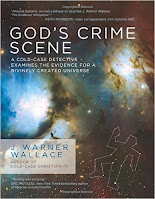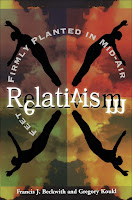Introduction
"God's Crime Scene" (Kindle, Paperback, GoodReads, Promo Video) is the highly anticipated "sequel" to J. Warner Wallace's "Cold Case Christianity: A Homicide Detective Investigates the Claims of the Gospels". In his first investigation Wallace looks at the evidence for the claim that the Gospels were eye-witness accounts of the life of Jesus. In his latest book, he investigates the existence of God. He takes his experience and skill-set as a homicide detective to bring together the evidences and present them in a coherent and convincing manner for the jurors (readers) to decide. God's Crime Scene is 204 pages divided into eight chapters. He has also included nearly 80 additional pages of case files for digging deeper into the cases he investigates in the book. This review will provide a chapter-by-chapter summary of the book but it cannot be substituted for reading the full text. I've included short interviews with J. Warner Wallace and Bobby Conway from The One Minute Apologist at the end of chapter summaries so you can hear a synopsis of the chapter directly from the author.Opening Statement: Has Someone Else Been in This Room?
J. Warner Wallace begins his investigation by taking the reader through one of his first crime scene investigations. The crime scene involved a death that needed to be determined if it was the result of natural causes, suicide, or homicide. Wallace explains that when making this determination, the investigator quickly assess the pieces of evidence in the room and asks whether those pieces originated inside the room or if the came from the outside. If the evidence cannot all be explained by remaining inside the room, then they have evidence of an intruder- someone outside the room. Not only can these pieces of evidence establish that an intruder invaded to commit the murder, but they can also be used to give the identity of the murder (a suspect profile). He notes that it is important to have multiple independent types of evidence to build the strength of the case for the type of death (homicide) and the identity of the murderer.Wallace explains that investigating God's existence is analogous. If all the evidence of the universe can be explained by staying inside the universe, then there is no need to appeal to someone outside the universe. However, if all the evidence cannot be explained by remaining inside the universe, then we have stumbled upon direct evidence of a source outside the universe. Just as the same evidence can be used to construct a "suspect profile" of the murderer, so too can the evidence that must be explained by going outside the universe be used to construct a profile to identify the "intruder" external to the universe.
Video- How Does A Detective Investigate God's Existence?




